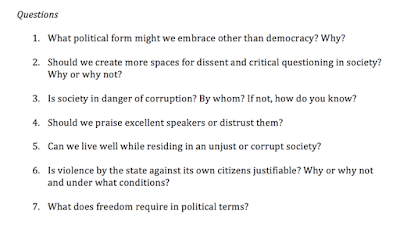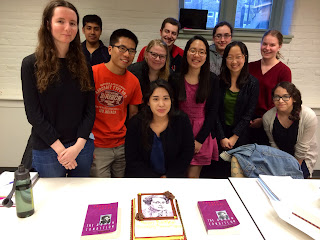Fall 2015 Teaching

Reading over my students' final essays from "Introduction to Ancient and Early Modern Political Philosophy" ( syllabus ) yesterday, I'm thrilled to witness the birth of political theorizing. So many of them have taken up the skill of integrating arguments from the history of political thought into their own considerations of political questions. To reflect on freedom, one student examines eleutheria (the ancient Greek word commonly translated as "liberty") in Aristotle and then contrasts this with Republican liberty in Polybius and Cicero. To develop her own thoughts on dissent and politics, another student links the need for contestation in Machiavelli's political theory with Socrates' ceaseless questioning. Yet these students do not merely survey what others have said. Instead, they take up this thought and bring it into their own inquiries and arguments. They make Aristotle, Polybius, and Cicero their own internal interlocutors, partners in the di

